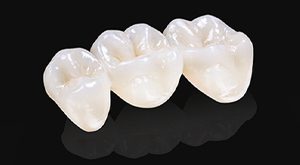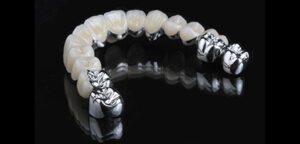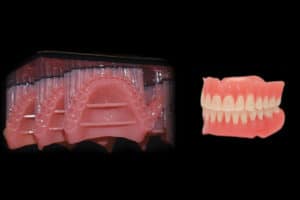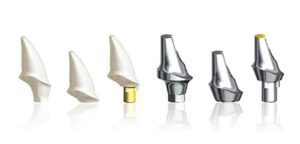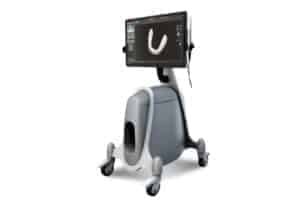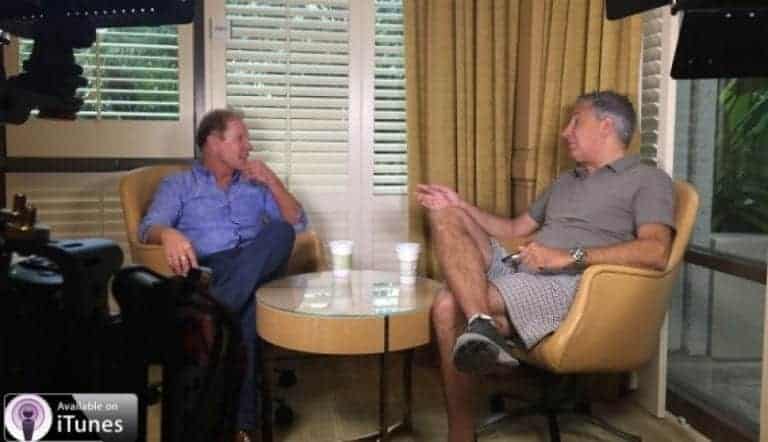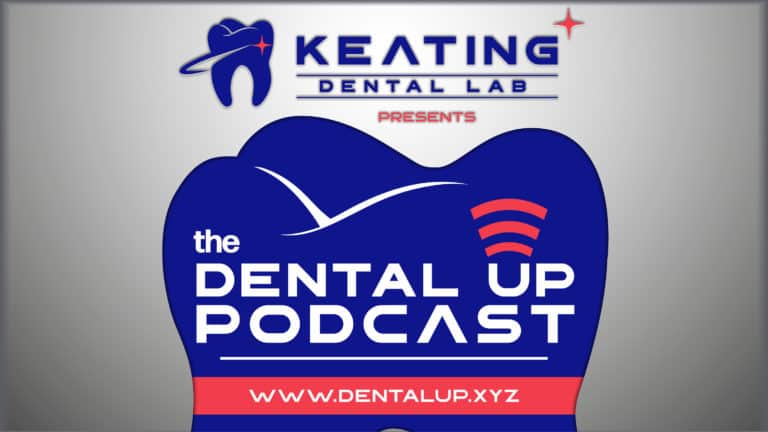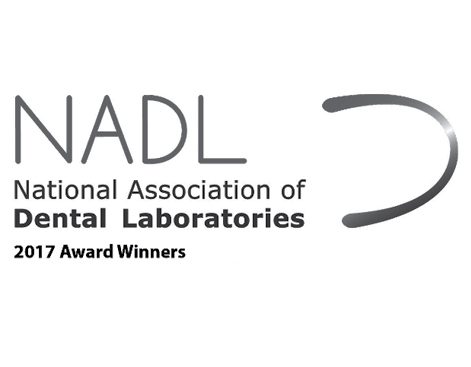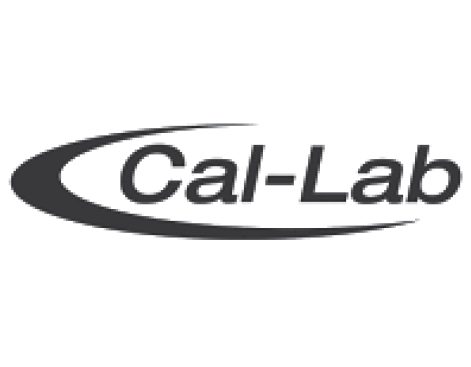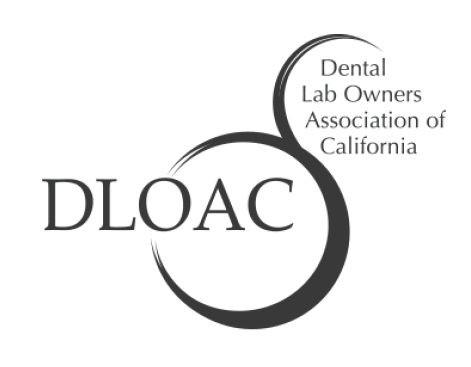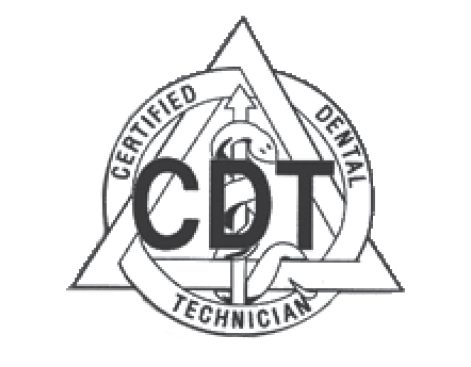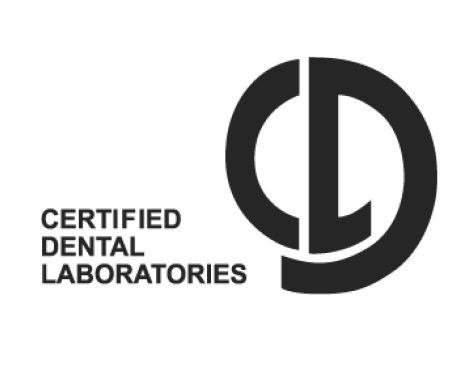Dr. Lou Graham and Dr. David Hornbrook (Key Opinion leaders) speak on motivation, passion for dentistry and the positive surrounding patient interaction. Dr. Grahams philosophy on eliminating some of the undesirables in your clinical practice to start enjoying your practice and what you are passionate about , hits home to everyone in the Dental Industry!
More Dental Practice Enhancer Podcasts here: itunes.com/podcast/dentalup
Podcast Transcription:
Dr. Hornbrook: Hello, I’m Dr. David Hornbrook, the Clinical Director of Education and Technology here at Keating Dental Lab Irvine, CA. We’re in for a treat today in another weekly podcast on dental up, we have a special guest someone who in the last 2 or 3 days I’ve got to know incredibly well and enjoyed his company. That’s Dr. Lou Graham. Welcome.
Dr. Lou Graham: Thanks, Buddy.
Dr. Hornbrook: Oh, my god, you’re here!
Dr. Lou Graham: Glad to be here.
Dr. Hornbrook: We’ve had interactions in the last few years and it’s just a little pass, “Hey good to see you, Lou.” A year later, “Hey good to see you, Lou.”
Dr. Lou Graham: Totally.
Dr. Hornbrook: We sit on opposite sides at some of the tables at some of these meetings. When I first met you I thought here’s a smart guy, great dentist, very knowledgeable, very successful obviously but we’re very, very different. That’s what I imagine. You’re from East Coast and then Chicago, I’m a SoCal surfer boy from San Diego. I’ve realized the last couple of days, I think we have an incredibly amount in common.
Dr. Lou Graham: Totally. You know it’s called first judgement. We all do that. First impression, first judgement. Totally thought, plus your name is there, I’m over here and we were in different circles so to speak. Couldn’t agree more.
Dr. Hornbrook: Yes we absolutely are. You’re doing so many cool things. I’ll mention you started a group Catapult which you can talk a little bit about. I know there’s a lot of speakers that maybe didn’t have an avenue or way to get to the podium you’ve helped them out as well.
Dr. Lou Graham: Correct.
Dr. Hornbrook: As a laboratories and dental societies who say, “I can’t afford Hornbrook”. We’ve got these other people who are great speakers that are passionate or they’re in a title or focus on an area that maybe isn’t available.
Dr. Lou Graham: Right.
Dr. Hornbrook: Let’s talk a little bit about … Where did you come up with that?
Dr. Lou Graham: When I broke in to this speaking, KOL so to speak, it was so individual you did your think, I would do my thing and I thought, “Wow, why not pull this together”, so I believe the whole idea was have manufacturers have products create a group of guys, the guys evaluate the products, we’re all clinicians. We speak the truth so if we love something “Boom”, if we don’t love something, well, we tell the company.
They’re paying for this honest evaluation, which is different and I think it’s really important to get good opinions. Some of it’s products that’s in development from there we went in to speaking. You’re here and we’re in a great symposium and I got 10 good friends here, 11 now, it’s just a great way for us to grow. I think we just share the word because dentistry is changing so fast, which we will get into. Technology is booming, everything’s changing and it’s hard for everybody out there to keep up. I think this is our way of participating in it.
Dr. Hornbrook: Yeah, how many doctors do you have in the Catapult?
Dr. Lou Graham: We’re now close to 60.
Dr. Hornbrook: Wow, and that’s doctors and some team members, maybe that are speaking on …
Dr. Lou Graham: It’s really more focused on doctors. It’s doctor to doctor. We’ll speak with teams and auxiliary and wonderful other people but evaluating products really bottom line comes down to a doctor participation.
Dr. Hornbrook: The viewers and listeners, and you’ll see it keeps hoping up more and more the success of Lou’s group, sponsors my Catapult, or Catapult speaker, and now you know where that came from. We have about a half hour but we could probably spend 3 and a half hours, right? So let’s talk about some things that I think would interest us both. What dentin bonding agent do you use?
Dr. Lou Graham: Shut up.
Dr. Hornbrook: We had a conversation I said I went to this podcast and the first thing they said was what dentin bonding agent do you use. It’s like no one wants to know that.
Dr. Lou Graham: That’d kill me.
Dr. Hornbrook: Were going to talk about a lot of things. One thing though that … Because I think you and I are so similar, when you wake up and you brush your teeth and you look in the mirror in the morning what motivates you; because you are a practicing dentist, your doing all these kinds of things. You’re probably at a point where you could say I’m not going to do this anymore, I’m not going to do this anymore so what motivates you as you see yourself back in the mirror to move on and do all the fun things you’re doing?
Dr. Lou Graham: The truth his you get to a point where … You know, dentistry is a stressful job. It is a stressful job, no question. I run an office with 5 hygienists, every specialist like Seattle Study Group all in the office, two full time associates, just a great group of people. I love … I honestly will tell you, do I love running a business? No. I really, I’m telling you, I don’t.
What I love honestly every day is getting up and knowing I’m going to have patient interaction. You get to a point where, am I hopping chair to chair doing everything just to make you’re numbers? At the end of the day, and I get why people have to do that. Then you also get to a point in life where you see what a beautiful thing we do every day. Yeah, patients can be difficult, we all know that but on the other hand the relationships so I see routinely patients above 50.
I can’t stand kids, can’t stand them! 5 at home, that’s plenty. I mean it but I really don’t want to see kids. The relationships are with adults, and they become long term. I kind of think of our work, it’s artistic and that’s the hobby type of feel like get but I’m still running a business. Don’t be fooled I still have to run a business. I still got 16 whatever people who work for me, I have to run a business.
Dr. Hornbrook: Our overhead isn’t 20% like some businesses.
Dr. Lou Graham: Can I say?
Dr. Hornbrook: We have to look at that constantly.
Dr. Lou Graham: No, and we should talk about that eventually but I will say to you, if you just go to work and you’re just looking at just numbers and numbers, man it is stressful. You have to take a step back and that’s an acquired thing where this is something you really can enjoy. I’ve learned that from older dentists who would say, “You’ll get there.”
Dr. Hornbrook: Those are, the older dentist, and I’ve had the opportunity to interact with some of these. You know, they’re 75 years old and they don’t want to quit. Where there’s dentist in their 40s that are dying to get out because they haven’t seen what you and I’ve seen. They’re looking …
Dr. Lou Graham: I feel bad.
Dr. Hornbrook: I feel really bad. I have a really good friend that he just can’t wait to get out of dentistry and I’m thinking I can’t wait to get to work on Monday morning. You’re right it’s stressful but you need to eliminate what I call the undesirables. You don’t like kids, I love kids but I will not do dentistry on kids.
Dr. Lou Graham: Me either. No, totally. That’s what I mean.
Dr. Hornbrook: When I see them on the schedule it’s like I’m going to psyche myself into this I can do it, I can do it, Mr. Squirty, Mr. Sucky let’s have a good time.
Dr. Lou Graham: Are you kidding me?
Dr. Hornbrook: But …
Dr. Lou Graham: Right, but are you kidding me?
Dr. Hornbrook: Then when I go in I did not have a good time.
Dr. Lou Graham: Right.
Dr. Hornbrook: At the end of the visit, I push my chair back, I’m exhausted. The kid wants to know if they can have two toys, I want to know if I can have two drinks, honestly. You know?
Dr. Lou Graham: Honestly, I know!
Dr. Hornbrook: I think a lot of dentists struggle with that because they think they need to treat all their patients maybe for the bottom line. That’s what keeps them unhappy. Endo, I don’t like endo and so I don’t do endo. I don’t do the things I don’t like. I think that’s so important. I agree with you. You look at dentistry and I think we have an opportunity and very few professions have that opportunity to change someones life in a very positive way. It’s a very intimate relationship.
Dr. Lou Graham: Oh!
Dr. Hornbrook: Your sitting near your patients chair you put your hands in their mouth ..
Dr. Lou Graham: No question!
Dr. Hornbrook: You’ve got this interaction with these great patients of all ages and I call it a non-sexual intimate relationship.
Dr. Lou Graham: Right.
Dr. Hornbrook: Not many people you would let put their hands in your mouth but as a dentist you would just open wide.
Dr. Lou Graham: I get it. I do.
Dr. Hornbrook: It’s fun, you get some interaction that are different from other professions
Dr. Lou Graham: I also will say, part of getting up in the morning is we do so many evaluations of technologies. I think that’s also great because I know you do the same thing. I’m not talking like a bonding agent, but I’m talking like anything from a new cone-beam or a new diagnostic imaging for caries or something like this and all of a sudden, it’s all about stimulation. If you did the same thing every day … I do nothing like I did even 10 or 15 years ago. Everything continues to change and it’s so rapid.
Dr. Hornbrook: [crosstalk 00:08:19]
Dr. Lou Graham: It is amazing how the technologies today look. When I graduated dental school, we both did in explorer a traditional x-ray in a mirror no loops I mean, are you kidding me? Today, if you’re not really up to date and staying up to date I think you’re missing the wonderful opportunities we can really do. That’s the fun of getting up!
Dr. Hornbrook: You’re absolutely, it is fun. Let’s hypothetically you decide you want to move to San Diego and you sell your practice in Chicago and you open a practice in San Diego, what technology would you say has to be in this office today in order to practice the type of dentistry I want to practice.
Dr. Lou Graham: Okay, let’s assume explorers are tossing a coin for caries and I’m a general dentist, so for me caries diagnostics is key. It’s everyday dentistry. CariVu is a must. I absolutely will tell you trans-illumination is amazing. Florescence technology, knowing what you’re potentially doing with the Spectras and the Sopros, huge opportunity. Talking [inaudible 00:09:33] into another level, why? You can explain to patients on a screen this is what’s going on. Of course, digital x-rays. I would have to tell you I would need a cone-beam because with all the endo and implants and combination ortho, this is what we need digital pan with the cone-beam. Technology to me is diagnostic. I’ll tell you, I love challenging the norm so this is great that you bring it up. You have a 16 year old in there. What’s the norm? You take bite wings and what do bite wings show you? Bite wings are trying to look for decay. Not accurate at all! You take a technology like CariVu so much more accurate. In explorer on a 16 year old.
Dr. Hornbrook: Who makes CariVu? Just so our audience can …
Dr. Lou Graham: CariVu is made by Dexis.
Dr. Hornbrook: Okay.
Dr. Lou Graham: Okay. Dexis; amazing, got into it a year ago.
Dr. Hornbrook: Describe a little bit because there’s people saying, “I don’t know what that is” and they’re trying to figure out how to spell it right and so talk a little bit about that technology.
Dr. Lou Graham: It’s a trans-illumination technology, what happens is you’re basically shinning a light through a tooth and it’s little two pieces of rubber … More complicated than that, totally comfortable to the patient. Takes me less than a minute to do a full mouth and you’re really just doing posterior. You’re illuminating looking for … It’s light passing through a tooth and if it’s porous if there’s a porosity like a a crack or decay it will look dark. The tooth will illuminate white otherwise.
Now you can see class 2 decay and you can see where it is in a buckle lingual direction versus on a x-ray you need so much, you need about 50% [inaudible 00:11:08] and you don’t even have a chance. You don’t [inaudible 00:11:11] your looking at an x-ray. Is it into the dentin is it not, we’re going to watch. This allows you to see class 2s and cracks so much more unbelievably.
Now on all my patients that are really 16 and above because I pretty much won’t see them underneath 16 is a low caries risk, why am I radiating them? I’d rather do CariVu, far more diagnostic and then maybe I’ll take bite wings every lets say 2 or 3 years. It’s really amazing how it’s changing in explorer, pick, pick, pick, pick. Are you kidding me? Are you kidding me? Go look at your explorers, you couldn’t detect half of anything on those.
Dr. Hornbrook: You can clean your cuticles.
Dr. Lou Graham: Right, you can clean a cuticle. Now take florescence technology and they’re all going to continue to be advance and you’re doing like a Doppler radar of do I seal this? Do I restore it? Now there’s no more surprises. I’ll give you an example, how many times do you think somethings small you take your [fisheratomy 00:12:03] or a small 330 and you just go in and I’m going to lightly … it’s a small cavity and boom your bird just drops in and go, massive hole!
Dr. Hornbrook: It’s a grand canyon!
Dr. Lou Graham: It’s a grand canyon! There’s no such think as a good dental surprise. I think you go back to the question you’ve got to have caries diagnostics. Cone-beam with digital pan for many dentist, for me especially if you … Again, I would develop a multi specialty approach. I want to know what’s going on. I don’t want the surgeon telling me where the implant has to go. Then it’s ultimately in your hands. The rest of that patients life, it’s you! The surgeon is long gone!
Dr. Hornbrook: [crosstalk 00:12:41]
Dr. Lou Graham: Right, but it really allows you to interact better than counting on them so I really love the interaction with specialist and it just raises our car. You want to work wit ha specialist who respects you and knows ultimately you’re a team. Technologies go those are incredible. Velscope trained forever. You interviewed John [Camesi 00:13:08] and he’s involved with the latest in oral diagnostics and oral cancer. That will come out in other technology. I would say those are the inherent technologies that I would have to have in my practice right now.
Dr. Hornbrook: I totally agree. Especially, I don’t use CariVu, I’m excited about it.
Dr. Lou Graham: We’ll make that happen.
Dr. Hornbrook: As we were currently at a Kurt, KOL event, key opinion leader’s event and he knows we looked at technology and we looked at materials this weekend. Someone always raise your hand and say, “Will insurance cover that? Will insurance recognize that?” With the CariVu, so you obviously see obvious decay let’s say a class 2, patient has insurance you know I like to help that patient out with whatever they get. Do you then have to take a bite wing and send it to the insurance or what’s insurance doing with this CariVu?
Dr. Lou Graham: You are so beyond to me, and I’m saying this as a compliment, because you get it. You walked the walk. What happens is, I’ll turn to a patient and I’ll go … I’m an insurance feed practice my associates, BPO then we accept insurance but even insurance companies are taking less bite wings. I mean, they’re reimbursing so if I have a 16 year old or an 18 year old and all I’m doing is CariVuing and taking a digital cone-beam, low radiation everything is low radiation, if they have decay I have to take a bite-wing to submit it but here’s my point for insurance but if a patient says you know what 60 dollars. If I do bite wings, I do CariVu anyway because I know I’m going to miss things.
To answer your question, if they want insurance only then I will take the bite wings but I j take CariVu anyway so you go why would a dentist buy it? The first month alone 25 lesions. We found 25 or 26 it was unbelievable and it’s all happening in the hygiene operatory, not my operatory so the hygienists are all trained and the true challenge is your hygiene department is your key to growth. It’s not marketing and getting all the new patients in. What are your hygienists finding? What are they diagnosing? That’s part of to me the CariVu diagnostics, the spectra diagnostics that’s what they do.
Dr. Hornbrook: A hygienist typically has a more intimate relationship with the patients than you do.
Dr. Lou Graham: Totally.,
Dr. Hornbrook: My hygienist is absolutely incredible. We have a rule in my office it’s going to be CariVu now but she has to have something on the internal camera. She’s so good at it so as we come in from a hygiene check whether it’s an old amalgam and old composite with leakage whether is a gold crown with a little bit of stain she’d say, “Dr. Hornbrook, Suzy here I saw this thing on 18 and I wanted you to look at it, you can see it right there.” And it’s blown up big.
That kind of my rule with her and so there’s always something on the screen and the patient sees that blown up they love Denise, they totally trust her. Now I just say, you know what, you’re right that needs to be replaced, got a fracture so using something like CariVu or similar and get your hygiene team involved as diagnoses. You know it’s interesting when you talk our can of worms you never want to dental catastrophe and you drop in to a giant [crosstalk 00:16:25].
I mean how many times we’ve all done this and it happened to me the other day. A patient came in for their bite wings we take them typically every year and there’s a huge lesion on the Doof 5 and I go ahead and numb the patient up, open it up and it’s huge, like wow. This has been here longer than a year. I go back now and it’s like “oh yeah there it is” a year ago …
Dr. Lou Graham: Can I say, how any times does that happen?
Dr. Hornbrook: It happens all the time!
Dr. Lou Graham: … And everybody out there you know this happens.
Dr. Hornbrook: And so that now became an on-lay because it went underneath on the lingual cusp, I had to wrap [inaudible 00:17:00] where a year ago that I missed even with ClearVu because we have Dexis I didn’t see it but now I can kind of see it but had I had CariVu I wouldn’t have had that.
Dr. Lou Graham: It really helps you check. I’m with you, first off on technology you got to have [inaudible 00:17:15] cameras. If that hygienist doesn’t create the emotional want and need from the patient, then they don’t follow up and it just sits there so I couldn’t agree more. It’s amazing how many times with ClearVu and Dexis, you can see it afterwards but you walk in and you got two minutes to look at x-rays.
Dr. Hornbrook: Looks good to me.
Dr. Lou Graham: Right. You want something to just jump out and pop. The other thing is now with better diagnostics you can do so much more minimally invasive preparation designs or even like an icon from DMG and actually seal or infiltrate it approximately. You know what? There’s going to be plenty of dentistry to do because caries isn’t going away.
Dr. Hornbrook: Right.
Dr. Lou Graham: The earlier, if you can prevent or rement, so important. Yeah, go on.
Dr. Hornbrook: Okay let’s change. We decided what’s in our new office in San Diego, we decided to make that purchase and we’ll be paying for it a long time I’m sure. You know you work with a lot of dentists and the demographics are obviously all over the board from dentists that are 60 to dentist that just got out of school. What do you see as a primary, the questions and concerns that dentists have now?
Dr. Lou Graham: I feel bad. I’m interviewing for a new associate and I call them kids, 30 year olds, and they’re kids you know your kids.
Dr. Hornbrook: We used to be kids.
Dr. Lou Graham: We did. Don’t rub it in.
Dr. Hornbrook: We’re kids at heart!
Dr. Lou Graham: Right, totally!
Dr. Hornbrook: Yes, yes!
Dr. Lou Graham: It’s the debt thing, so they come in they are so in debt.
Dr. Hornbrook: Do you know what the average debt service of a graduating student
Dr. Lou Graham: Do it!
Dr. Hornbrook: 410,000 dollars!
Dr. Lou Graham: Okay, 410, you know how much baggage that is to carry?
Dr. Hornbrook: They’ll never own a practice.
Dr. Lou Graham: Can I, so they come in … here’s the thing if I’m going to grown their practice and so much of this is still PPO initial driven, they’re working so hard and then are they working with the right values? You know what? There’s some corporations that are amazing and some that we know are not. Really the life of doing it the way you want to creating your own mission, you know, your reputation you know what you love to do. If you had to go work for somebody and do what they want and honestly it’s not what you want I have empathy I truly have empathy.
You have a company like Smile Source, they’re out of Houston and they’re going to grow to the point where their goal is independent dentist working collaboratively together and you know 100% about collaboration work together, market together, grow together, they’re not competing because they’re at distance enough in a community and I think how we’re going to have to grow and collaborate and really build together to stay competitive in this environment and bring in younger dentists. That’s the difference. I mean we have to run smarter business we have to buy better we have to run businesses more efficiently educate more efficiently and the generation or two behind us they have to do all that but they also they have to deal with this debt.
Dr. Hornbrook: And the competition, you know when we started practice we competed with someone that might be better or smart down the street where they’re competing with these DMSO, these corporate dentistry … these are [inaudible 00:20:27] capitalists. They know how to run a business. They are running it at very low …
Dr. Lou Graham: Agreed.
Dr. Hornbrook: If I already have half a million dollars in debt and I come in and even if the bank wouldn’t loan me the money, and with my debt service, I can’t be as efficient as a professional business running industry. We have to be smart and it is sad. I have a young , in fact he’s in Orange County here in Lincoln Park and he worked for Pacific Dental Service which is a DMSO out here.
Dr. Lou Graham: Right.
Dr. Hornbrook: When he got out of school he says, “We get to do [inaudible 00:20:55] and a lot of this dentistry” and I said, “How much do you get paid?” Because I really didn’t honestly know and he says, “Well, we get 25% of collections.” I thought, “You know …” Of course, I’m thinking my fees, well 25% of 1,800 bucks for a crown that’s not so bad. He goes, “No you don’t get it!” I said, “What don’t I get?” He says, “well it’s 25 dollars of what the business collects that they patient is charged” I said, ” What does that mean?” He says, “Some of these plans the patient pays 100 dollars for a crown.” So I’m trying to do the math …
Dr. Lou Graham: No wait are you kidding?
Dr. Hornbrook: He says, “I got paid 25 dollars for doing a crown” and he says, “The problem is …” he’s a great dentist “… You start to lose interest, it kind of fades, you know 25 bucks man I’m not going to take another impression or I’m not going to make sure everything is perfect!” The quality of dentistry …
Dr. Lou Graham: You compromise.
Dr. Hornbrook: Is compromised not because of materials, not even because of the business model or plan it’s … You know, if you got paid 25 dollars for a crown how many times would you send it back because the shade is off a little bit. Your not! It’s changed and we heard this weekend that they say in 10 years 40% of dentistry is going to be DMSOs and it’s probably going to be more and they’re marketing to the dental schools.
Dr. Lou Graham: Oh yeah!
Dr. Hornbrook: They go in and it’s pizza and beer night and it’s like … And they’re telling everyone to go to Texas because they’re doing really well there. They say move to Austin and we’ll pay you’re moving fees we’ll give you 125 grand your first year and 125 thousand dollars for a student, who’s been student since they …
Dr. Lou Graham: That’s a lot of money.
Dr. Hornbrook: That’s a heck of a lot of money! Then they get in, they’re starting to pay their debt service off and they’re making 125, 000 so they decide to buy a boat, they buy a condo, and now they never get off this treadmill where they’re going to be able to be in private practice for themselves. It’s a different model.
Dr. Lou Graham: It’s not only a different model, the best part about dentistry is not running a business, that’s how we’re all going to collaborate in the future to run smarter businesses but it’s the entrepreneurial aspect. I want to get up in the morning and do what I want to do not what somebody else wants to do. That’s where you burn out really, really fast. My advice would be don’t buy a boat and a condo.
Dr. Hornbrook: Yes!
Dr. Lou Graham: I’m dead serious debt comparatively far less than today. Figure out your mission, if you’re in a corporation learn for 1 or 2 or 3 years and make a move. Start making a move and if your happy where you are with a corporation I get that too but you got to make a short term plan then a long term plan. It sounds cliché-ish but the ride is a longer ride, otherwise you turn 50 and you’re going I should have and I should have and you should never say I should have you should always try.
Dr. Hornbrook: No wyou have 2 boats and 2 exes and 3 homes now you’re never going to get out, right. Okay so we talked about what’s going to be in our office today so let’s try to move forward as we look at 5 years from now. So 5 years, same office, we’re looking down and we had this and we had this 5 years ago what do you think we’re going to be buying or looking at technology wise 5 years from now?
Dr. Lou Graham: So I think 5 years from now I think some of the subspecialties are really going to be changed. I mean, let’s look at implants; implants have changed unbelievably. As the technology continues to go it’s like when you started doing your full mouth veneer cases and your cosmetic cases that was where dentistry was moving to.
I think in my community tooth replacement, people on average today are living 85-90 years so a lot of the dentistry is only going to … The significant dentistry wears, you lose teeth so I think implant dentistry is going to continue to be a minimally invasive technique. Technology, are you kidding me? I think between the custom made stints and where we’re going, looking at what [inaudible 00:24:46] is doing downstairs yesterday afternoon, everything will be so custom guided and so readily available with technology these will be huge adjuncts of what to do.
I think endo is totally going to change. I think the fact that you only fill so much of a canal and you can only … I think that will totally change and I think we’ll be sitting here looking at adhesion dentistry as a thing of the past. Everything is going to be bio-activity, how do we re-grow. Yesterday we were all talking about serum or different cements and how to we seal, how do we grow.
It’s interesting how we have different approaches. I think the less invasive you are today you got to be because in 5 more years … You know, my goal is to keep teeth for 85 years and so if you can’t how do we prolong in whatever we’re doing. I think technology is only going to make predictability because right now it’s so subjective dentistry so I think it’s got to be far more predictable from diagnostics and our clinical services. What do you think?
Dr. Hornbrook: I totally agree with you on that. Especially with conversation of tooth structure. This whole bio-active materials which I don’t think a lot of people know about because it’s a hot buzz word, but you’re right. Whether it’s regrowing teeth or just re-mineralizing teeth. All of a sudden you have an area that typically if there was defect in the margin which …
Dr. Lou Graham: Which we talked about yesterday.
Dr. Hornbrook: Your very best ground, my very best ground I mean it still have a 50 mic [inaudible 00:26:17] filled with cement right?
Dr. Lou Graham: Hello!
Dr. Hornbrook: That is eventually going to de-mineralize that’s why we have to replace restorations all the time, but if I have material that as it de-mineralizes, re-mineralizes itself I mean that’s a whole another ball game. We talked yesterday about, it’s kind of a bummer on our business owners that if I put a crown on you Lou, 15 years form now it would be kind of nice if I could replace it to keep my business running but ethically and morally and the oath that we took was I want to do the very best for you. If possible I [crosstalk 00:26:50] last forever, nothing last forever but if I can prolong that it’s doing the right thing, right? Then you saved all your money because you didn’t have to replace the crown, now you can afford veneers.
Dr. Lou Graham: It’s always, it comes back to that. The truth is our business motto would change if the patients then show up every 3 and 6 months for their routine visits and now you can re-mineralize teeth and stop from further aggressiveness, I think in your hygiene system and your maintenance system that could be a whole different field in dentistry. The technology we were talking about isn’t a paste, it’s actually a process of re-min- … I think, we don’t know what we don’t know and in 5 years I think we’ll have unbelievably new technologies.
Dr. Hornbrook: And we’ll all have an ultrasound that fits over here.
Dr. Lou Graham: Don’t even go there.
Dr. Hornbrook: It’s an inside joke, sorry. We’re not quite there yet. We got to wrap it up.
Dr. Lou Graham: Okay.
Dr. Hornbrook: I call this the treadmill or the commute podcast about 30-35 minutes and were about there. This has been unbelievably fun. Your energy level it’s just fun. I hope you enjoyed it. Lou Graham, so Lou how can they get a hold of you and obviously they would probably love to hear about what you have to say in your all day or some of your programs and actually we’re excited about this because our very first interaction other than sitting at the bar, of course I have a diet coke and he has a diet coke and so anyway we’re going to do probably several lectures together next year.
Dr. Lou Graham: Can’t wait!
Dr. Hornbrook: Our energy on the stage, I don’t know whats going to happen. We’re probably going to burn through computers our screen or something we’re going to have so much fun.
Dr. Lou Graham: We’ll have a lot of fun.
Dr. Hornbrook: We’re going to have a lot of fun. How would our listeners and our viewers get a hold of you?
Dr. Lou Graham: Honestly the best thing they can do is go to the Catapult Group and just Google the Catapult Group in dentistry and you’ll see all the wonderful thing myself, our team does, get him involved and that’s how they would get me. Honestly, the catapult Group.
Dr. Hornbrook: Did you have fun?
Dr. Lou Graham: That was a fast half hour, baby!
Dr. Hornbrook: It’s unbelievable. I wish our classes in dental school went that fast.
Dr. Lou Graham: Please.
Dr. Hornbrook: Or traffic, or a plane rides. Anyway, going to wrap up for this week, hope you enjoyed it as much as I did. Be sure to check out our website “wwwdentalup”, all one word “.xyz” we have some cool videos, we’re doing some cool programs we’re going to do some light patient courses here in Irvine, we’re about 5 miles from Newport Beach about 7 miles from Disneyland, great place to be. If you’re in the area give us a call, we’d love for you to stop by. Have a great week.

